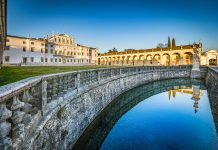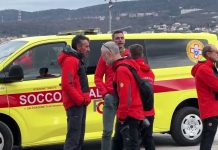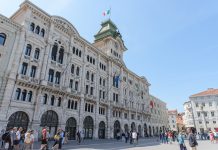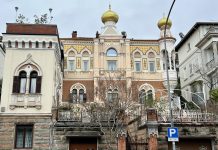by InTrieste
Interviews: FVG governor, Massimiliano Fedriga; FVG councilor for environment, Fabio Soccimarro
Policymakers and industry leaders gathered on Thursday at the Generali Convention Center to examine the costs and opportunities of Europe’s shift toward cleaner energy. The regional forum, titled “Transition. Energy and the Costs of Change,” was organized by the NEM Group and brought together government officials, researchers and business representatives from across Friuli Venezia Giulia.
The discussion centered on the economic and technological hurdles of decarbonization, as well as the geopolitical pressures that have intensified in Europe following Russia’s invasion of Ukraine. Speakers emphasized that the transition will require long-term planning, substantial investment and coordination across national and European institutions.
Asked about the biggest challenges facing the region in the energy transition, Massimiliano Fedriga, the governor of Friuli Venezia Giulia, stressed the need for diversification. “It is a regional challenge, but one that fits within a national and European context,” he said. “We need the strength to create medium- to long-term planning by diversifying our supply sources. Relying on one main source from a single country has proven problematic — not just for energy supply but also politically, as we’ve seen with Russia.”
Fedriga highlighted ongoing initiatives, including the Hydrogen Valley project, which aims to create a regional hydrogen ecosystem to serve industry and transportation. Solar and photovoltaic projects are also advancing, he noted, alongside research into emerging energy technologies.
Hydrogen, he said, has the potential to reshape energy systems locally and nationally. “Hydrogen could transform the entire regional and national energy system,” he said, calling it a long-term but economically viable strategy.
He also addressed renewed debate over nuclear power in Italy, where past referendums led to its phase-out. “There is room for nuclear power — I hope so,” Fedriga said. “It’s certainly one of those clean energies that can make our country more self-sufficient.”
The forum also included remarks from Fabio Scoccimarro, the regional councillor for environment and energy. Officials stressed the need to balance environmental goals with economic resilience, particularly in a region with key industrial employers and a strategic port connecting Central Europe to the Mediterranean.
While challenges remain significant, speakers presented the transition as both necessary and an opportunity — one that could redefine the region’s economic future if supported by long-term strategy, technological investment and European cooperation.






























